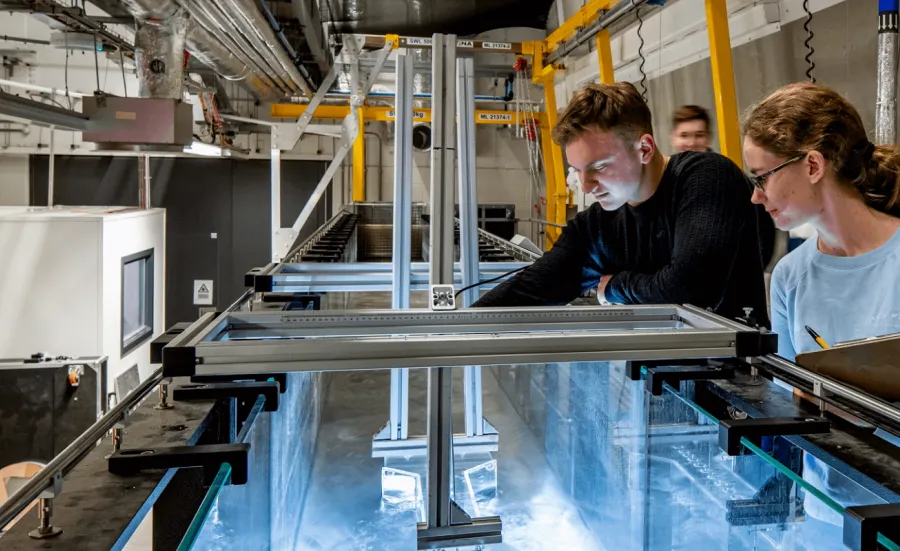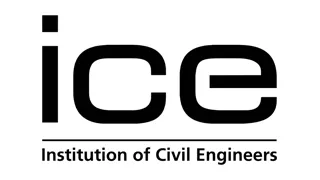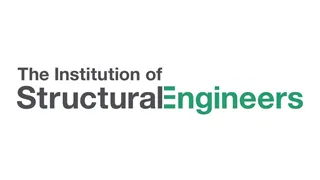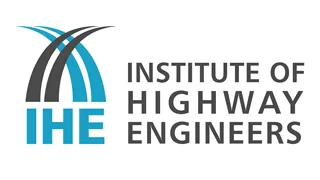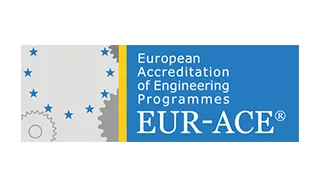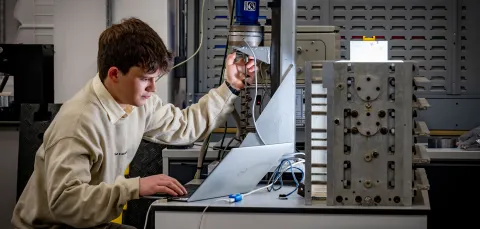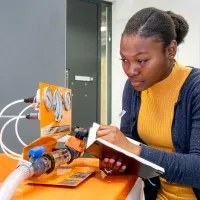About this course
Civil engineering is essential to the sustainable future development of society, from planning and construction, to water supply and coastal defence. This 4-year integrated master’s course goes beyond the 3-year degree with advanced modules and a master’s-level group design project.
You’ll develop the skills to design and build creative solutions to challenges in the built environment, infrastructure and cities, and the management and teamwork skills needed to succeed in industry.
This MEng Civil Engineering course follows the BEng degree for the first 3 years. In your fourth year, you can choose to focus on specialist topics related to the latest research and needs of society, including:
- coastal and maritime engineering
- earthquake engineering and seismic design
- bioenergy
- transport modelling
- waste resource management
- flood modelling and mitigation
Design is integral to civil engineering, you’ll take part in laboratory sessions and design projects throughout your degree to put your knowledge into practice. These are often based on the requirements of a real site and a real client.
Our Design Show blog has examples of our students’ design work.
As part of this course you can:
- apply analytical techniques and problem-solving skills to engineering problems
- develop technical design skills, such as sketching, computer-aided design (CAD) and model-making
- develop surveying, construction practice and computer programming skills
- take part in the Constructionarium challenge, where you’ll get practical construction experience and build scaled-down versions of famous structures
- learn about the latest research developments as they happen, as part of your course
- apply to our SUCCESS scholarship scheme, with opportunities for work placements and an annual bursary
- take part in a master’s-level group design project
- showcase your work in our annual Engineering Design Show
You'll get hands-on experience in state-of-the-art facilities, this includes our £48m National Infrastructure Laboratory and our:
- testing and structures research lab
- geotechics lab
- large structures testing lab
- hydraulic flumes
- Jaguar Land Rover driving simulator
- dedicated student design studios and workshops
Year in industry
Enhance your employability by taking this course with a paid industrial placement year.
Apply using:
- Course name: Civil Engineering with Industrial Placement Year
- UCAS code: HH20
You'll spend this extra year at an engineering firm, applying the skills and knowledge you've learned so far.
The fee is 20% of the standard annual tuition fee.
Follow our students on Instagram
Get a student's perspective on our Civil Engineering undergraduate degrees by following our student Instagram page.
We regularly review our courses to ensure and improve quality. This course may be revised as a result of this. Any revision will be balanced against the requirement that the student should receive the educational service expected. Find out why, when, and how we might make changes.
Our courses are regulated in England by the Office for Students (OfS).
Accreditations
This degree is accredited by the Joint Board of Moderators (JBM) comprising the Institution of Civil Engineers, Institution of Structural Engineers, Institute of Highway Engineers, the Chartered Institution of Highways and Transportation and the Permanent Way Institution on behalf of the Engineering Council for the purposes of fully meeting the academic requirement for registration as a Chartered Engineer (CEng).
Learn more about accreditation on the Joint Board of Moderators website.
This course is accredited by:
Course locations
This course is based at Highfield and Boldrewood.
Awarding body
This qualification is awarded by the University of Southampton.
Download the Course Description Document
The Course Description Document details your course overview, your course structure and how your course is taught and assessed.
Entry requirements
For Academic year 202627
A-levels
A*AA including mathematics (minimum grade A)
A-levels additional information
Offers typically exclude General Studies and Critical Thinking.
Applicants who have not studied the required subjects can apply for the Engineering/Physics/Mathematics Foundation Year
A-levels with Extended Project Qualification
If you are taking an EPQ in addition to 3 A levels, you will receive the following offer in addition to the standard A level offer: AAA including mathematics, plus grade A in the EPQ
A-levels contextual offer
We are committed to ensuring that all learners with the potential to succeed, regardless of their background, are encouraged to apply to study with us. The additional information gained through contextual data allows us to recognise a learner’s potential to succeed in the context of their background and experience. Applicants who are highlighted in this way will be made an offer which is lower than the typical offer for that programme as follows:
AAB including mathematics (minimum grade B)
International Baccalaureate Diploma
Pass, with 38 points overall with 19 points required at Higher Level, including 6 at Higher Level in Mathematics (Analysis and Approaches) or 7 at Higher Level in Mathematics (Applications and Interpretation)
International Baccalaureate Diploma additional information
Applicants who have not studied mathematics at Higher Level can apply for the Engineering/Physics/Mathematics Foundation Year
International Baccalaureate contextual offer
We are committed to ensuring that all learners with the potential to succeed, regardless of their background, are encouraged to apply to study with us. The additional information gained through contextual data allows us to recognise a learner’s potential to succeed in the context of their background and experience. Applicants who are highlighted in this way will be made an offer which is lower than the typical offer for that programme.
International Baccalaureate Career Programme (IBCP) statement
Offers will be made on the individual Diploma Course subject(s) and the career-related study qualification. The CP core will not form part of the offer. Where there is a subject pre-requisite(s), applicants will be required to study the subject(s) at Higher Level in the Diploma course subject and/or take a specified unit in the career-related study qualification. Applicants may also be asked to achieve a specific grade in those elements. Please see the University of Southampton International Baccalaureate Career-Related Programme (IBCP) Statement for further information. Applicants are advised to contact their Faculty Admissions Office for more information.
BTEC
RQF BTEC
D in the BTEC National Extended Certificate plus grades A*A from two A-levels including mathematics (minimum grade A) or D* in the BTEC National Extended Certificate plus grades AA from two A-levels including mathematics.
D*D in the BTEC National Diploma plus grade A in A-level mathematics or DD in the BTEC National Diploma plus grade A* in mathematics.
We will consider the BTEC National Extended Diploma if studied alongside A-level mathematics.
We are committed to ensuring that all learners with the potential to succeed, regardless of their background, are encouraged to apply to study with us. The additional information gained through contextual data allows us to recognise a learner’s potential to succeed in the context of their background and experience. Applicants who are highlighted in this way will be made an offer which is lower than the typical offer for that programme.
Additional information
Offers typically exclude General Studies and Critical Thinking.
Applicants who have not studied the required subjects can apply for the Engineering/Physics/Mathematics Foundation Year
QCF BTEC
D in the BTEC Subsidiary Diploma plus grades A*A from two A-levels including mathematics (minimum grade A) or D* in the BTEC Subsidiary Diploma plus grades AA from two A-levels including mathematics.
D*D in the BTEC Diploma plus grade A in A-level mathematics or DD in the BTEC Diploma plus grade A* in mathematics.
We will consider the BTEC Extended Diploma if studied alongside A-level mathematics.
BTEC contextual
We are committed to ensuring that all learners with the potential to succeed, regardless of their background, are encouraged to apply to study with us. The additional information gained through contextual data allows us to recognise a learner’s potential to succeed in the context of their background and experience. Applicants who are highlighted in this way will be made an offer which is lower than the typical offer for that programme.
Access to HE Diploma
Not accepted for this course. Applicants with an Access to HE Diploma in a relevant subject should apply for the Engineering/Physics/Mathematics Foundation Year
Access Offer Contextual
We are committed to ensuring that all learners with the potential to succeed, regardless of their background, are encouraged to apply to study with us. The additional information gained through contextual data allows us to recognise a learner’s potential to succeed in the context of their background and experience. Applicants who are highlighted in this way will be made an offer which is lower than the typical offer for that programme.
Irish Leaving Certificate
Irish Leaving Certificate (first awarded 2017)
H1 H1 H1 H2 H2 H2 including mathematics and applied mathematics
Irish certificate additional information
Applicants who have not studied mathematics at Higher Level can apply for the Engineering/Physics/Mathematics Foundation Year
Irish Offer Contextual
We are committed to ensuring that all learners with the potential to succeed, regardless of their background, are encouraged to apply to study with us. The additional information gained through contextual data allows us to recognise a learner’s potential to succeed in the context of their background and experience. Applicants who are highlighted in this way will be made an offer which is lower than the typical offer for that programme.
Scottish Qualification
Offers will be based on exams being taken at the end of S6. Subjects taken and qualifications achieved in S5 will be reviewed. Careful consideration will be given to an individual’s academic achievement, taking in to account the context and circumstances of their pre-university education.
Please see the University of Southampton’s Curriculum for Excellence Scotland Statement (PDF) for further information. Applicants are advised to contact their Faculty Admissions Office for more information.
Welsh Baccalaureate
A*AA including mathematics (minimum grade A)
Or
A*A from two A-levels including mathematics (minimum grade A), and A from the Advanced Skills Baccalaureate Wales.
Welsh Baccalaureate additional information
Offers typically exclude General Studies and Critical Thinking.
Applicants who have not studied the required subjects can apply for the Engineering/Physics/Mathematics Foundation Year
Welsh Baccalaureate contextual offer
We are committed to ensuring that all applicants with the potential to succeed, regardless of their background, are encouraged to apply to study with us. The additional information gained through contextual data allows us to recognise an applicant's potential to succeed in the context of their background and experience. Applicants who are highlighted in this way will be made an offer which is lower than the typical offer for that programme.
T-Level
A Distinction overall, with A in Core and Distinction in the Occupational Specialism, and grade A in A-level Mathematics
The following T levels are accepted:
- Design, Surveying and Planning for Construction
- Onsite Construction
- Building Services Engineering for Construction
- Science
Other requirements
GCSE requirements
Applicants must hold GCSE English language (or GCSE English) (minimum grade 4/C) and mathematics (minimum grade 4/C)
Find the equivalent international qualifications for our entry requirements.
English language requirements
If English is not your first language, you must show that you can use English to the level we require. Visit our English language pages to find out which qualifications we accept and how you can meet our requirements.
If you are taking the International English Language Testing System (IELTS), you must get at least the following scores:
IELTS score requirements
- overall score
- 6.5
- reading
- 6.0
- writing
- 6.0
- speaking
- 6.0
- listening
- 6.0
If you do not meet the English language requirements through a test or qualification, you may be able to meet them by completing one of our pre-sessional English programmes before your course starts.
You might meet our criteria in other ways if you do not have the qualifications we need. Find out more about:
- skills you might have gained through work or other life experiences (otherwise known as recognition of prior learning)
Find out more about our Admissions Policy.
Foundation year for engineering, physics, maths and geophysics
A foundation year will give you the skills and knowledge to progress to this course if you don't have the right qualifications for direct entry.
It could be the right option if you:
- have A levels, or equivalent international qualifications, in subjects other than the ones needed for direct entry
- have international qualifications in relevant subjects but not at A level equivalent
- have a BTEC Extended Diploma in a relevant subject
- are studying an Access course in a relevant subject
- are a mature student with relevant experience or study
You'll also need to show that you have strong maths skills.
Find full details on our Engineering, Maths, Physics, Geophysics Foundation Year page.
Foundation programmes for international students
A foundation programme will give you the language skills and subject knowledge you need if you're not qualified for direct entry to your chosen undergraduate course.
You'll progress to your chosen course after successfully completing the foundation programme.
Find out more about undergraduate foundation programmes for international students.
Mature applicants
We welcome applications from learners of all ages. Students who are aged 21 and over at the start of their undergraduate course are defined as mature by the University of Southampton. We take a holistic assessment of the application looking for academic ability and commitment to study. Typical entry requirements, which may vary from discipline to discipline, includes for example, evidence of recent formal academic qualifications or professional qualifications, relevant work experience or volunteering. You may also be invited to attend an interview with an Admissions Tutor. For some degree programmes, there may also be a Professional, Statutory and Regulatory Body (PSRB) requirement. We accept many different academic qualifications. For more information, please contact the Admissions Team.
Got a question?
Please contact our enquiries team if you're not sure that you have the right experience or qualifications to get onto this course.
Email: enquiries@southampton.ac.uk
Tel: +44(0)23 8059 5000
Course structure
You'll learn the fundamentals of the subject across all 4 years of your course. You'll also take design modules, where you'll apply your engineering knowledge.
These modules, along with a major individual project in the third year, allow you to tailor your degree to suit your own interests or career plans.
You'll choose from optional modules in the fourth year, and you can even boost your employability by doing a paid placement year.
You do not need to select your modules when you apply. We can help you customise your course.
Year 1 overview
The first year provides a solid grounding in the fundamental engineering science, as well as the basis of civil engineering.
Core modules cover:
- mathematics
- mechanics, structures and materials
- design and computing
- thermofluids
We'll introduce key design skills, such as sketching model-making and computing, through workshops and a design and manufacture project. These will also help you develop skills like:
- observation
- critical thinking
- team work
- communication
At the end of the year you'll take part in the Constructionarium, a week-long activity in Norfolk.
Year 2 overview
You'll further develop your core design and civil engineering skills.
You’ll study the Liveable Cities module, exploring the liveability in a city, with specific sessions including urban design, waste management, transport, energy, as well as site visits.
A group design project will build on your design skills from year 1 and learning from Liveable Cities. You’ll design a significant physical engineering change to a city, for instance a bridge or flooding scheme, and develop the deployment plan.
You'll also study topics that include:
- maths and statistics
- structural analysis and design
- materials
- soil mechanics
- hydraulics
Year 3 overview
We introduce highway and traffic engineering in year three, and you'll explore structural stability and geotechnics in more depth. You can also choose from specialist modules including urban design, environmental hydraulics, railway engineering and human factors in engineering.
You’ll apply your knowledge to the design and solution of practical problems. You’ll take part in a group design project and attend guest lectures from industry.
An individual research project allows you to explore your own areas of interest. In the past, students have considered why concrete floor slabs fail, or investigated the erosion and retreat of coastal cliffs.
Some student projects are run in collaboration with top institutions, such as MIT, or can lead to publications in international peer-reviewed journals.
Recent projects have included:
- exploring how engineering can interface with artificial intelligence to improve the operation of the things we construct
- a project that directly contributed to the upgrade of a municipal wastewater treatment plant where the student was recognised as one of the co-authors in a research paper
- a mathematical model to test recommendations put forward by lifeguards of how best to escape rip currents. The student was named as the first author when his work was published in a leading journal
- the development of an algorithm to accelerate simulations of beach evolution and erosion due to storms. This work has led to an ongoing collaboration with MIT
Year 4 overview
In your final year you'll focus on design, management and teamwork, skills that are highly valued by employers.
You’ll take part in a group design project where you’ll apply your engineering and scientific knowledge to design an original solution to a realistic engineering problem.
Major engineering companies and regional authorities often get involved in our group design projects.
You'll study project economics and management, learning about how projects work in financial, economic, social and environmental terms. You’ll also choose from a wide range of specialist optional modules.
Want more detail? See all the modules in the course.
Modules
The modules outlined provide examples of what you can expect to learn on this degree course based on recent academic teaching. As a research-led University, we undertake a continuous review of our course to ensure quality enhancement and to manage our resources. The precise modules available to you in future years may vary depending on staff availability and research interests, new topics of study, timetabling and student demand. Find out why, when and how we might make changes.
For entry in academic year 2026 to 2027
Year 1 modules
You must study the following modules in year 1:
An Introduction to Civil Engineering Design and Digital Skills
Civil engineering is a design discipline that is broad and holistic, while also focused and extremely precise. It utilises experimentation, creativity, numerical analysis and calculation and the application of scientific principles to deliver sustainable ...
Civil Engineering Fundamentals
This module presents knowledge and skills specific to civil/environmental engineering, in three areas: Environmental Sustainability and Geology for Geomechanics and in Construction. It complements the more general engineering science knowledge and underst...
Mathematics for Engineering and the Environment
This course lays the mathematical foundation for all engineering degrees. Its structure allows students with different levels of previous knowledge to work at their own pace. Pre-requisite for MATH2048 One of the pre-requisites for MATH3081 and MATH...
ThermoFluids
Core Thermodynamics and Fluid Mechanics for all Engineering Themes. Students should be aware that this module requires pre requisites of Mathematics
Year 2 modules
You must study the following modules in year 2:
City Infrastructure Design Project
The City Infrastructure Design Project module builds on what you have learned from the Liveable Cities module and focuses on developing an engineering project within the city that contributes towards a specific vision (accessibility to water, waterfront d...
Hydraulics
This module continues to develop the fundamental themes on fluid mechanics introduced in the module FEEG1003 “Thermofluids” and applies them to the study of incompressible fluids in adiabatic conditions. It will focus on problems associated with water flo...
Liveable Cities
Cities are continually evolving in response to economic, social and environmental drivers. Globalisation is accelerating this process and cities which are unable to respond may quickly lose their purpose and vitality. In a UK context, many cities have are...
Mathematics for Engineering and the Environment Part II
The module aims to teach mathematical methods relevant for engineering. The first part is about differential equations and how solve them, from ordinary differential equations to partial differential equations. The second part is about either vector calcu...
Numerical Methods
This module provides an in-depth coverage of key numerical analysis methods that are used to solve practical everyday problems that occur throughout engineering. You will learn the theory underlying these methods and how to code algorithms for these metho...
Soil Mechanics
This module provides an introduction to the principles of soil mechanics – how soil behaves when subject to engineering loads and construction processes. It also provides knowledge of simple analysis methods that are appropriate for assessment of geotechn...
Structural Analysis
Every building, bridge, and piece of infrastructure relies on structures that can safely carry loads without failure. In this module, you will learn how civil engineers understand, analyse, and check the behaviour of structural elements such as beams, col...
Structural Design
This module aims to provide a detailed understanding and practical application of methods of structural analysis and design to approved codes of practice relevant to typical steel and concrete framed structures. This module will build on the content of CE...
Year 3 modules
You must study the following modules in year 3:
Geotechnical Engineering
This module will introduce you to the analyses often used in the design of gravity, embedded and reinforced soil retaining walls, simple shallow and pile foundations, the assessment of slope stability and slope stabilisation schemes. It will build on the ...
Highway and Traffic Engineering
This module combines the two main elements of Highway Engineering – geometric design and road pavement structural design. You will gain an understanding of key issues and practices in both elements, including design case studies where you will put theory ...
Individual Project
The Individual Project is a learning experience that enables you to carry out research and bring together many of the concepts that you have learnt over the first two years of the course as well as the knowledge and skills learnt during part III. You w...
Structural Stability and Finite Element Analysis
This module builds on the structural mechanics, analysis and design modules in Parts 1 and 2. It covers structural stability and the influence of material and geometric nonlinearity; it also introduces the theory and underlying principles of the finite el...
You must also choose from the following modules in year 3:
Human Factors in Engineering
This module provides an introduction to the role human factors in Engineering. It demonstrates how the characteristics and capabilities of people can be taken into account to optimise the design of things used by people, the environments in which they li...
Railway Engineering and Operations
This module provides comprehensive coverage of the main features of railway engineering and operations, including topics ranging from system planning through to the impacts of noise and vibration. During the module students will develop an appreciation o...
Urban Design
This module introduces students to the discipline of Urban Design. Students will be able to develop outline design proposals for the urban realm that integrate an understanding of contextual analysis, place making techniques and urban design theories at v...
Urban Water and Wastewater Engineering
The module covers two main themes. One looks at the types of process that are used to purify water to a standard acceptable for distribution. The subject material is taught so as to give a fundamental understanding of the physical, chemical and biological...
Year 4 modules
You must study the following modules in year 4:
Group Design Project
This group project enables you to apply your conceptual engineering and science knowledge to an engineering design problem. The ideas are developed through detailed design, experimentation, computer modelling and/or manufacture. You will also consider and...
Project Economics and Management
Your studies to date have given you a comprehensive understanding of how civil and environmental engineering projects work in a physical sense. This module will give you a systematic understanding of how such projects work in financial, economic, social a...
You must also choose from the following modules in year 4:
Advanced Geotechnical Engineering
Geotechnical design underpins the performance of vital civil engineering infrastructure related to energy, water, transport and the built environment. This module will develop your knowledge and understanding of geotechnical analysis for a range of civil ...
Advanced Structural Engineering
Modern civil engineers must design structures that are not only safe and durable, but also low-carbon and resource-efficient. In this module, you will learn how to design real structural components made from reinforced concrete, prestressed concrete, stee...
Bioenergy
The bioenergy industry is undergoing rapid growth due to the policy drivers underpinning the current interest in bioenergy, such as energy security and climate change. This module provides an overview of key topics on sustainable bioenergy production, inc...
Coastal and Maritime Engineering
This module will introduce you to the range of skills needed in the determination of design requirements and conditions, planning, and the design of coastal structures. These skills comprise the determination of wave conditions, the determination and anal...
Composites Engineering Design and Mechanics
This module provides an in depth coverage of the mechanics of fibre-reinforced polymer materials and structures. The core of the course encompass modelling of the 2D orthotropic lamina reduced from 3D continuum mechanics for anisotropic solids, classical ...
Earthquake Engineering and Seismic Design of Steel Buildings
This module provides an overview of the breadth of earthquake engineering as a discipline, providing the most important knowledge and intellectual skills for students to be able to assess earthquake hazards and ground motions (shaking), and then to analys...
Energy Performance Assessment of Buildings
This module gives an overview of the policy issues, various planning aids and assessment methods available to quantify energy efficiency and sustainability in buildings. Students will be able to use different tools to investigate building energy performan...
Energy Resources and Engineering
On completion of the module, you will have developed a broad understanding of energy resources, engineering technologies for energy conversion and have an appreciation of solutions available to meet the world's power demands. You will be able to formulate...
Flood Modelling and Mitigation
Floods are amongst the most damaging and costly of all natural hazards. Worldwide, frequent occurrences of heavy rainfall and other drivers combine with high levels of human exposure and high-value and vulnerable assets to produce multi-billion losses eve...
Renewable Energy from Wind, Wave and Tide
The atmospheric and gravitational processes present on the earth generate flows of wind and water. This module studies these resources and practical methods/technologies for extracting cost-effective electrical and other energy conversions. The main focu...
River and Estuary Restoration
To critically examine current knowledge of the application of River Restoration techniques and their transferability to the UK and worldwide. As many river restoration projects are done to improve the status of fisheries, the costs and benefits of techniq...
Transport Management and Safety
A key component of Transportation Planning and Engineering is enabling safer and more efficient use of transport infrastructure and assets through transport management. This often involves making use of new technologies, in particular those related to In...
Transport Modelling
This module builds on theoretical aspects of transport planning and engineering to introduce a more applied approach covering the state-of-the-art in transport modelling. The module is divided into three intermixed strands: 'Transport Demand Models' for p...
Transport, Energy and the Environment
The transport sector is currently heavily fossil fuel dependent and, in advanced economies, accounts for around one quarter of carbon dioxide emissions. This module will provide you with a systematic understanding of the inter-relationships between transp...
Waste Resource Management
The module considers solid wastes from industry, commerce and domestic sources. The concept of a waste management hierarchy is introduced and practical ways in which it might be implemented are discussed. These include waste minimisation, reuse, recycling...
Learning and assessment
The learning activities for this course include the following:
- lectures
- classes and tutorials
- coursework
- individual and group projects
- independent learning (studying on your own)
Course time
How you'll spend your course time:
Year 1
Study time
Your scheduled learning, teaching and independent study for year 1:
How we'll assess you
- coursework, laboratory reports and essays
- design and problem-solving exercises
- individual and group projects
- oral presentations
- written exams
Your assessment breakdown
Year 1:
Year 2
Study time
Your scheduled learning, teaching and independent study for year 2:
How we'll assess you
- coursework, laboratory reports and essays
- design and problem-solving exercises
- individual and group projects
- oral presentations
- written exams
Your assessment breakdown
Year 2:
Year 3
Study time
Your scheduled learning, teaching and independent study for year 3:
How we'll assess you
- coursework, laboratory reports and essays
- design and problem-solving exercises
- individual and group projects
- oral presentations
- written exams
Your assessment breakdown
Year 3:
Year 4
Study time
Your scheduled learning, teaching and independent study for year 4:
How we'll assess you
- coursework, laboratory reports and essays
- design and problem-solving exercises
- individual and group projects
- oral presentations
- written exams
Your assessment breakdown
Year 4:
Academic support
You’ll be supported by a personal academic tutor and have access to a senior tutor.
Course leader
Joel Smethurst is the course leader.
Careers and employability
Employability skills
This degree will allow you to develop and evidence subject-specific and targeted employability skills. This includes the required skill set for a range of future careers, further study, or starting your own business.
The skills you can expect to focus on and gain from this course include:
- Research
- Critical thinking
- Commercial awareness
- Self-management
- Confidence
- Communication
- Teamwork
- Creativity
- Problem solving
- Resilience
The employability and enterprise skills you'll gain from this course are reflected in the Southampton skills model. When you join us you'll be able to use our skills model to track, plan, and benefit your career development and progress.
Download skills overview
Career pathways
Graduates commonly work in a range of organisations or sectors including:
Information and Communication,
Education,
Finance and Insurance,
Public Administration and Defence,
Scientific and Technical,
Manufacturing,
Transport.
- Consulting civil engineer
- Contracting civil engineer
- Structural engineer
- Water engineer
- Geotechnical engineer
- Highways engineer
- University lecturer
- Coastal engineer
- Flood risk officer
- Environmental engineer
- Building services engineer
- Construction manager
- Fire risk assessor
- Sustainability consultant
- Building control surveyor
- CAD technician
- Design engineer
- Estimator
- Nuclear engineer
- Site engineer
- Civil engineer
- Structural engineer
- Site engineer
- Software engineer
- Transport planner
- Tunnel engineer
- Flight Engineer
- Highways engineer
- Project manager
- Traffic engineer
Job prospects for MEng Civil Engineering graduates
*Example graduate job titles and job prospect statistics taken from The Graduate Outcomes Survey, which gathers information about the activities and perspectives of graduates 15 months after finishing their course.

Work experience opportunities
Choosing to do work experience is a great way to enhance your employability, build valuable networks, and evidence your potential. Learn about the different work and industry experience options at Southampton.
Careers services and support
We are a top 20 UK university for employability (QS Graduate Employability Rankings 2022). Our Careers, Employability and Student Enterprise team will support you. This support includes:
- work experience schemes
- CV and interview skills and workshops
- networking events
- careers fairs attended by top employers
- a wealth of volunteering opportunities
- study abroad and summer school opportunities
We have a vibrant entrepreneurship culture and our dedicated start-up supporter, Futureworlds, is open to every student.
Your career ideas and graduate job opportunities may change while you're at university. So it is important to take time to regularly reflect on your goals, speak to people in industry and seek advice and up-to-date information from Careers, Employability and Student Enterprise professionals at the University.
Fees, costs and funding
Tuition fees
Fees for a year's study:
- UK students pay £9,535.
- EU and international students pay £31,000.
What your fees pay for
Your tuition fees pay for the full cost of tuition and standard exams.
Find out how to:
Accommodation and living costs, such as travel and food, are not included in your tuition fees. There may also be extra costs for retake and professional exams.
Explore:
Bursaries, scholarships and other funding
If you're a UK or EU student and your household income is under £36,200 a year, you may be able to get a University of Southampton bursary to help with your living costs. Find out about bursaries and other funding we offer at Southampton.
If you're a care leaver or estranged from your parents, you may be able to get a specific bursary.
Get in touch for advice about student money matters.
Scholarships and grants
You may be able to get a scholarship or grant to help fund your studies.
We award scholarships and grants for travel, academic excellence, or to students from under-represented backgrounds.
Support during your course
The Student Hub offers support and advice on money to students. You may be able to access our Student Support fund and other sources of financial support during your course.
Funding for EU and international students
Find out about funding you could get as an international student.
How to apply
What happens after you apply?
We will assess your application on the strength of your:
- predicted grades
- academic achievements
- personal statement
- academic reference
We'll aim to process your application within 2 to 6 weeks, but this will depend on when it is submitted. Applications submitted in January, particularly near to the UCAS equal consideration deadline, might take substantially longer to be processed due to the high volume received at that time.
Equality and diversity
We treat and select everyone in line with our Equality and Diversity Statement.
Got a question?
Please contact our enquiries team if you're not sure that you have the right experience or qualifications to get onto this course.
Email: enquiries@southampton.ac.uk
Tel: +44(0)23 8059 5000
Related courses
Civil Engineering (MEng) is a course in the Civil engineering subject area. Here are some other courses within this subject area:
